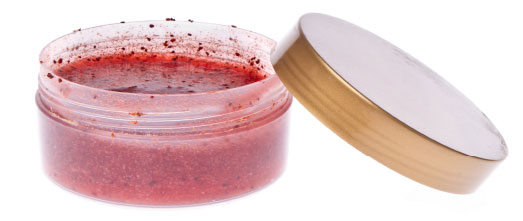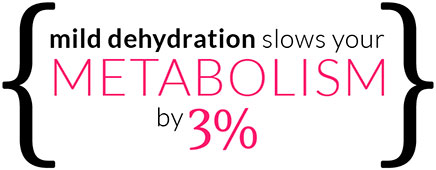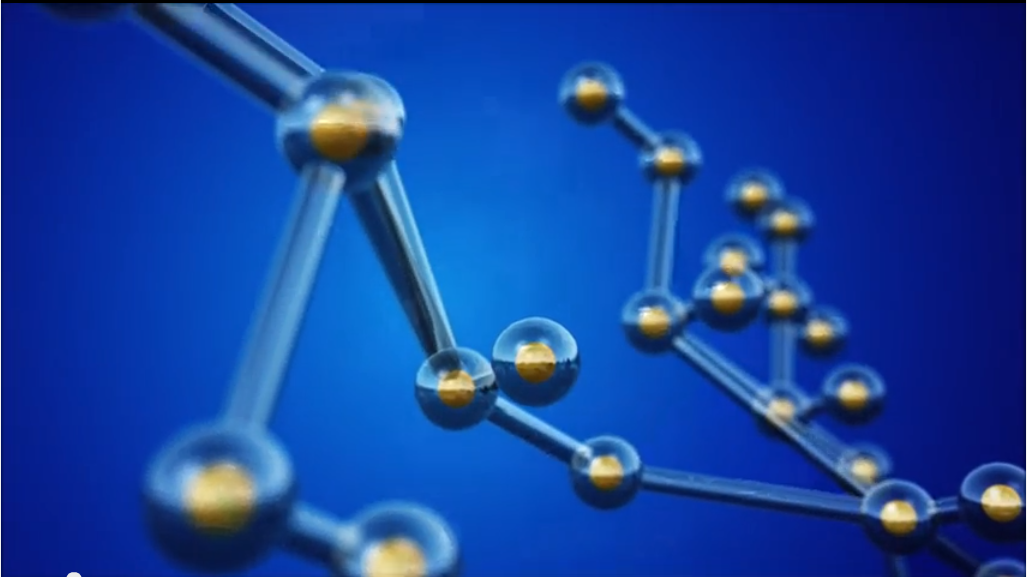
H20MG! Thirst pains are a real thing? You need to learn to eat water? This changes everything.
Water. It’s central to life. It’s part of you. Maybe not as big a part as we were once led to believe – it turns out our teachers were lying when they said we were made of 90 percent water: it’s more like 78 percent for newborn babies and 60 percent for adults – but still, we can’t deny that water is a huge part of us.
Turns out blood isn’t all that much thicker than water either. How could it be, when blood
itself is about 96 percent water? Speaking of which, did you know that it’s the increased number of particles in your blood and not necessarily a decrease in fluid that triggers the sensation of thirst?
It seems there’s quite a bit we don’t yet fully understand about how hydration works in
the body. Here are some facts that blew what we thought we knew about hydration out of
the water.
Hydration is about much more than
just water
Water is only one part of the process. You also need to get in the essential electrolytes, trace minerals and fatty acids needed to help bind and keep water in your body to nourish your cells. A healthy diet that includes fresh fruit, vegetables, nuts, seeds and small amounts of quality sea salt are great for those essential minerals, as is a supplement. Also try to eat more whole foods rich in fatty acids.
1.
Chronic, mild dehydration is thought to be the number one cause of daytime fatigue.
Yes, you do get “thirst pains”
They’re maybe not quite as obvious as hunger pangs, but they’re there: chronic joint pain, headaches, gastric ulcers, heartburn, colitis pain (constipation), and even chest pains have all been linked to dehydration. What’s happening is that acidic wastes collect in cells during normal metabolism, and dehydration means the wastes don’t get flushed out. Your nerves may interpret this collection of cellular waste as pain.
2.
Enjoy your coffee – it won’t
dehydrate you
Studies have shown that caffeine doesn’t really have the diuretic (makes your body produce more urine) effect we once thought. You need to take in a really large dose, around 500 mg, before it becomes a problem, so your daily cuppa (coffee or tea) containing less than 100 mg per cup is okay (just don’t drink five at once). Fitness experts are even recommending that runners drink a shot of espresso just before a workout, saying it’s much better running fuel than energy drinks.

3.
You have to eat your water
Up to 28 percent of your daily water intake comes from food (the liquid you drink makes up about 60 percent of your daily water intake, and the remainder is metabolic water that your body makes itself). Eating fresh foods high in water content is just as important for hydration as drinking water. Cabbage, lettuce, tomato, radish, zucchini, strawberries, cucumber, watermelon, peppers, grapefruit, spinach and celery are all over 90 percent water – good choices.
4.

Moisturising your skin is only half
the story
You want to keep your skin hydrated, but endlessly applying moisturiser on patches of dry, flaky skin isn’t always the answer. Balance is very important in skin, where the cells you currently see on the surface are basically on their way out. Skin cells need to die so that new ones can take their place. Thus exfoliating your skin and getting rid of redundant cells (usually the dry flaky ones) is just as important as moisturising the new ones that form underneath.
5.
Yes, you can drink too much water, but we wouldn't worry about it
Water intoxication is real and dangerous, but it’s very rare. It’s basically drinking too much water too fast for your kidneys to process. What happens is that the excess of water disrupts the balance of electrolytes in your blood (remember point 1 above?). So, how much can your kidneys process? One litre per hour, so just don’t drink more than that. Spread your glasses out through the day.
6.
Dehydration is the scariest thing when you look at it this way
We all know that severe dehydration will kill you, but science reckons many of us suffer from chronic, mild dehydration. This is the leading cause of daytime fatigue, and may exacerbate the symptoms of allergies and asthma. Mild dehydration slows your metabolism by three percent, and can cause fuzzy memory and trouble focusing, while also increasing the risk of contracting cancers of the colon, breasts and bladder, among others.

7.
Very clear urine is not a good thing
All serious athletes know that you can check your hydration level by the colour of your urine. The more particles in urine, the yellower/darker it is, indicating dehydration. A healthy colour is a light yellow. Very clear or completely transparent urine could actually indicate that your kidneys are overtaxed and that vital minerals are being depleted. Aim for a pale yellow (more like lemonade than apple juice) and you’re in good health.
8.

Drinking warm water is just as good as cold water
It really doesn’t matter whether you like your water hot or cold. Icy water might help your body cool down when you’re exercising, but beyond that, they’re the same. If you have sensitive teeth or prefer room temperature or heated water for whatever reason, you could add some Himalayan (pink) salt, which contains natural electrolytes, or even a slice of lemon to boost your immune system while hydrating you.
9.
Hydration works differently in skin: especially when it comes to ageing
While drinking water is very important, it’s not enough to ensure you age well. Much like we said in the first point, those essentials acids and minerals that bind water molecules and bring them to your cells are probably the most important. Skin not only ages, but will naturally tend to dehydrate the older you get, because essentials such as hyaluronic acid will deplete with age. Capable of holding up to 1 000 times its own weight in water, it is considered the most effective natural product to help promote hydration at a cellular level. When your body stops producing hyaluronic acid, you need to replenish it with a quality skincare product.
10.

More on hydrating skin
This video details some of (HA) hyaluronic acid’s most notable benefits for your skin.


• It’s naturally occurring – your body makes it.
• But your body stops making it as you age.
• It’s a main component of connective tissue and collagen.
• It increases the elasticity of the skin.
• It is the most powerful cellular hydrator we know.
• It retains up to 1 000 times its own weight in moisture.
• Hydration is essential for healthy skin.

Correctives Hydrating HA PLUS
• Advanced HA, called HAFi
• Made for every layer of skin
• Heals wounds
• Hydrates and firms
• Promotes repair and new cell growth
• Teaches your body to make more HA
Yes, hyaluronic acid is considered the “fountain of youth” and it is widely used. But no one understands your skin quite like Lamelle Research Laboratories does.
It’s all about delivery. Here’s a fact that many manufacturers of skincare products just don’t grasp: each layer of your skin is only able to absorb and use HA molecules of a very specific weight and size. It’s not one size fits all, so a product that merely contains HA is like dipping your foot into the fountain of youth and then walking away.
Dive in
To get the full effect, you need Correctives Hydrating HA PLUS. It contains hyaluronic acid fragments (HAFi), which are made by breaking normal HA molecules into specifically sized fragments, using the coolest sounding machine ever: a high-powered ultrasonic reactor.
These HAFis are used by every part of your skin for all-over hydration. They even promote your cells’ natural growth and teach them how to make more HA. Ask your skincare therapist or doctor, they’ll know.







